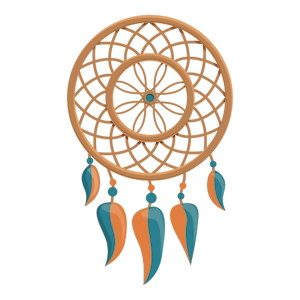What Does It Mean to Dream of Cape ?
Posted on: November 3, 2024
Last updated: February 19, 2025
The cape symbolizes protection, empowerment, and transformation in dreams. It reflects the dreamer’s desire for strength and guidance, while also indicating a readiness for change and personal growth.

What does Cape mean in a dream?
The symbol of a cape in dreams often reflects a sense of protection and empowerment. It can signify a desire to shield oneself from external influences or emotional turmoil. In many cultures, capes are associated with heroes and figures of authority, suggesting that the dreamer may be seeking strength or guidance in their waking life. The act of wearing a cape in a dream may indicate a longing for recognition or a wish to embrace one’s own potential.
Additionally, capes can represent transformation and change. Just as a cape can be donned or removed, the dream may suggest that the dreamer is at a crossroads, ready to embrace new opportunities or let go of old patterns. This symbolism is often explored in various dream books, where the cape is seen as a metaphor for personal growth and the journey towards self-discovery.
Moreover, the color and style of the cape can add layers of meaning. For instance, a vibrant red cape may symbolize passion and courage, while a dark, flowing cape could represent mystery or the unknown. Understanding these nuances can provide deeper insight into the dreamer’s emotional state and aspirations. The dreamer might find themselves reflecting on their own identity and the roles they play in their life.
Ultimately, the cape serves as a powerful symbol in the realm of dreams, encapsulating themes of protection, transformation, and self-empowerment. It invites the dreamer to explore their inner strength and consider how they present themselves to the world. By delving into the various interpretations found in dream books, one can uncover the personal significance of this intriguing symbol and its relevance to their life journey.
Meaning in dream books
Defense Mechanism
From a psychoanalytic perspective, a cape may symbolize a defense mechanism that the dreamer employs to shield themselves from emotional pain or vulnerability. The cape represents a barrier that allows the dreamer to navigate the world while keeping their true feelings hidden, suggesting a need for introspection and self-awareness.
Desire for Recognition
The cape can also reflect a desire for recognition or admiration. It may indicate that the dreamer longs to stand out or be acknowledged for their achievements. This interpretation encourages the dreamer to explore their self-esteem and the ways they seek validation in their life.
Exploration of Identity
Finally, the presence of a cape in a dream may signify an exploration of identity. It suggests that the dreamer is in a phase of self-discovery, trying on different roles and personas. This journey of understanding oneself can lead to greater self-acceptance and personal growth.
Transformation and Change
The appearance of a cape in a dream often symbolizes transformation and change. It can indicate that the dreamer is undergoing a significant transition in their life, shedding old identities and embracing new opportunities. The cape acts as a protective layer, suggesting that the dreamer is ready to face challenges with newfound strength.
Hidden Powers and Secrets
A cape can also represent hidden powers or secrets. In many cultures, capes are associated with mysticism and magic, hinting that the dreamer may possess untapped abilities or knowledge. This symbolism encourages the dreamer to explore their inner self and uncover the potential that lies within.
Protection and Safety
In the realm of dreams, a cape often symbolizes protection and safety. It can signify a desire for security or a need to shield oneself from external pressures. The dreamer may be seeking comfort and reassurance in their waking life, and the cape serves as a reminder that they have the strength to protect themselves.
Cape in different cultural contexts in dreams
In the realm of dreams, the cape emerges as a potent symbol, weaving together threads of cultural significance across various societies. In Western culture, the cape often represents protection and transformation, evoking images of superheroes donning their cloaks to shield themselves from harm while embarking on heroic quests. This duality of strength and vulnerability resonates deeply within the collective psyche, suggesting that the cape may symbolize the dreamer’s desire for empowerment or a need to confront challenges with newfound courage.
Turning to Slavic traditions, the cape carries its own unique connotations. Often associated with folklore and mysticism, capes in Slavic tales are worn by figures who traverse between worlds, embodying the connection between the mundane and the supernatural. This cultural lens invites dreamers to consider whether their cape signifies a journey into the unknown, a call to explore hidden aspects of themselves, or perhaps a reminder of ancestral wisdom that guides them through life’s complexities.
In Eastern cultures, the cape can symbolize honor and status, often linked to ceremonial attire that signifies a person’s role within the community. The act of wearing a cape in dreams may reflect the dreamer’s aspirations for recognition or a longing to embrace their identity fully. This cultural backdrop encourages individuals to reflect on their relationships with authority, tradition, and the roles they play in their own narratives, urging them to consider how these elements influence their waking lives.
Finally, in Oriental cultures, the cape may be associated with spiritual journeys and enlightenment. The flowing fabric often embodies grace and fluidity, suggesting a connection to the dreamer’s inner self and their quest for harmony. When the cape appears in dreams, it may serve as a reminder to seek balance and embrace the transformative power of change, inviting individuals to shed old layers and emerge renewed. Thus, the cape stands as a multifaceted symbol, inviting dreamers to explore its rich cultural tapestry and uncover the personal meanings it holds for them.
Cape in other contexts of use
Cape in Dreams
The element of a cape in dreams can symbolize protection, transformation, or a desire for freedom. Here are various contexts in which a cape may appear in your dreams, each with its own unique interpretation:
Wearing a cape
This may indicate a desire to take on a new role or persona, suggesting empowerment and confidence.
Seeing someone in a cape
This could represent a figure of authority or a mentor in your life, someone who inspires you.
Flying with a cape
Flying often symbolizes freedom; a cape may enhance this feeling, indicating a longing to break free from constraints.
Removing a cape
This action might suggest shedding old identities or burdens, embracing vulnerability.
Color of the cape
The color can have significant meanings; for example, a red cape may symbolize passion, while a black cape could indicate mystery or sadness.
Finding a cape
Discovering a cape in a dream may suggest uncovering hidden talents or strengths within yourself.
Hiding under a cape
This may reflect feelings of insecurity or a desire to retreat from the world.
Caped superhero
Dreaming of a superhero in a cape may symbolize aspirations for bravery and heroism in your waking life.
Caped villain
This may represent inner fears or negative traits that you are grappling with.
Caped figure in the shadows
This could indicate feelings of uncertainty or anxiety about the unknown.
Caped dancer
A caped dancer may symbolize grace and the beauty of self-expression.
Wearing a tattered cape
This may suggest feelings of inadequacy or that you feel unprepared for a challenge.
Caped figure in a crowd
This might reflect feelings of being different or standing out from others.
Caped child
Seeing a child in a cape may evoke nostalgia for innocence and imagination.
Caped figure in a storm
This may symbolize facing challenges and the need for resilience.
Caped character in a story
This could reflect your own narrative and the roles you play in your life.
Caped figure offering help
This may suggest a need for support or guidance in your waking life.
Caped character at a celebration
This might symbolize joy and the celebration of achievements.
Caped figure in a castle
This could represent a longing for security and stability.
Caped figure disappearing
This may indicate feelings of loss or abandonment.
Caped figure in a dream world
This could symbolize exploration of your subconscious and the mysteries within.
Caped figure leading a group
This may suggest leadership qualities or a desire to guide others.
Caped figure in a fantasy
This may reflect your aspirations and dreams of a different reality.
Caped figure in a battle
This could symbolize inner conflicts and struggles you are facing.
Caped figure in a parade
This may indicate a desire for recognition and celebration of your achievements.
Caped figure in a garden
This could symbolize growth, healing, and the beauty of nature.
Caped figure at a crossroads
This may suggest important decisions and the need to choose your path wisely.
Caped figure in a dreamscape
This may reflect your imagination and the limitless possibilities of your mind.
Caped figure in a mirror
This could symbolize self-reflection and the exploration of your identity.
Caped figure in a labyrinth
This may indicate feelings of being lost or confused in your life journey.
Caped figure at dawn
This could symbolize new beginnings and the hope of a fresh start.
Caped figure at dusk
This may reflect the end of a phase and the transition to something new.
Caped figure in a dream journal
This might symbolize the importance of recording your dreams and insights.
Caped figure in a library
This may indicate a thirst for knowledge and understanding.
Caped figure in a stormy sea
This could symbolize emotional turmoil and the need for stability.
Caped figure with a child
This may reflect nurturing qualities and the importance of family.
Caped figure in a twilight setting
This might symbolize the blending of realities and the exploration of dreams.


Comments posted under the entry: 0
The user must be logged in to comment or view comments.